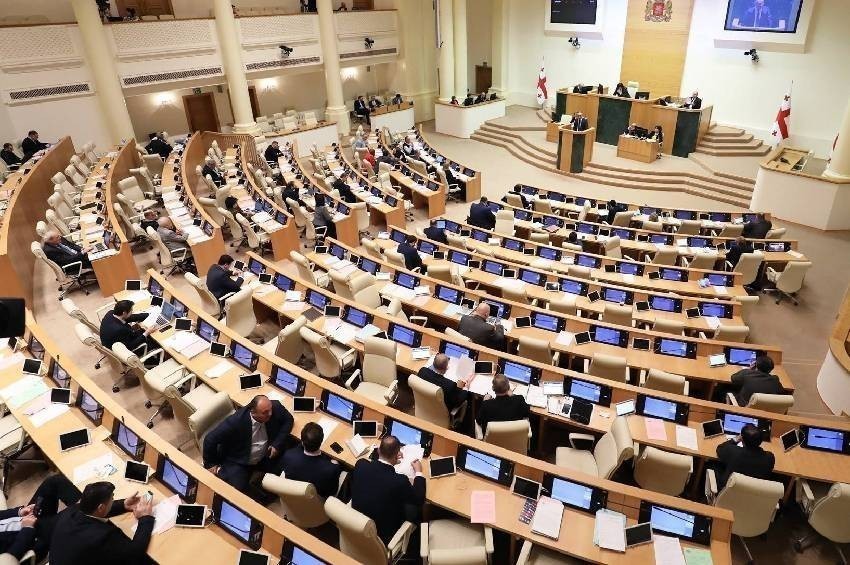საერთო ცხელი ხაზი +995 577 07 05 63


On March 15, it became known to the public through the media that a Scientific-Advisory Council for National Minorities was established on the basis of the Committee on Diaspora and Caucasus Issues of the Parliament of Georgia. In general, the signatory organizations welcome the idea of establishing a consultation mechanism for national minorities within the Parliament, although it is categorically unacceptable for us to establish a Minority Advisory Council on the basis of the Diaspora and Caucasus Affairs Committee, which strengthens the perception of connecting ethnic minorities to other states and damages the process of building an inclusive, equal and democratic society. The approach considering its own citizens, groups that historically live in our State, as a diaspora by the highest State organ is unable to withstand the criticism, which not only shows a lack of understanding of the fundamental principles of a democratic state but also severely damages the integration process and promotes alienation of non-dominant groups. Also, it should be noted that the mandate, goals, and objectives of the Advisory Council remain unclear and its creation was undemocratic, without the involvement of ethnic minorities and human rights actors, which in general already bears signs of disregarding democratic principles.
The Committee on Diaspora and Caucasus Issues has the competence to coordinate the Georgian Diaspora and define policies with the peoples of the Caucasus, to facilitate relations with compatriots living abroad and with the Caucasian people. Within this committee, there is already a Scientific Advisory Council established in March 2017, whose main task is to “support the strengthening of relations with our compatriots living abroad, diaspora organizations and the peoples of the Caucasus; To promote the regulation of migration processes and the improvement of the relevant legal framework.
Against the background of these competencies of the Parliamentary Committee, it is unclear why an Advisory Council is established on its basis to solve the problems of ethnic minorities living in Georgia and to facilitate the integration process (as stated in the official statement), as this decision itself contradicts the democratic principles, integration goals and reflects neither the real needs of ethnic minority groups, that historically live in Georgia, nor their self-identification with this State. This decision is unequivocally against equality because it separates the citizens of Georgia on ethnic grounds and creates a feeling of alienation and exclusion. If the State is truly interested in the systemic challenges facing the minorities and the integration process, it is unclear why an Advisory Council is not established on the basis of the Committee on Human Rights and Civil Integration, whose direct task is to promote civic integration, policy development, and monitoring.
This decision once again reinforces the discourse of seeing ethnic minorities from a geopolitical perspective and the perception that the protection of the rights of ethnic minorities living in Georgia is reciprocal and that the State should treat minorities with the same standards as other countries treat ethnic Georgians living there. This approach, in addition to being undemocratic, does not align with national interests and points to a wrong understanding of history and the present. It should be noted that this idea has been voiced by Georgian politicians in the past and it seems that the State does not understand, does not see the criticism of this approach among minority groups.
The fact that the Advisory Council was set up without consulting broad minority groups and experts working on the subject also cannot hold up the criticism. The process of establishing the Scientific Advisory Board is already contrary to the international standards set out in the Framework Convention, which states that the activities of the Advisory Boards should be open and transparent, its composition and the rule of composing should be determined democratically, with high involvement and representation of minorities. Given that the Council’s statute, its competencies, and composition are not yet known to the public, it is difficult to assess whether it meets the requirements and best practices for advisory mechanisms. However, the process of setting up an advisory board is already creating grounds for distrust.
Consultation mechanisms are the cornerstone of the public and political participation of minorities. Article 15 of the Council of Europe Framework Convention on National Minorities imposes Georgia “to create the conditions necessary for the effective participation of persons belonging to national minorities in cultural, social and economic life and public affairs, in particular those affecting them.” Within this Article, Advisory Committee established within the framework of this convention evaluates the states in accordance with three major aspects: 1) whether the state has adopted minority consultation mechanisms on various levels (government, legislative body, self-government); 2) whether the state has adopted special measures to strengthen minority representation in elective bodies; 3) to what extent minorities are involved in state’s economic and public/cultural lives.
The Advisory Committee discusses the establishment and development of advisory mechanisms in Georgia from the period of publication of its opinions (2009). Within all three evaluation cycles, the Committee indicates that the only advisory mechanism in the State is the Council of Ethnic Minorities under the Office of the Public Defender, although the State has no formalized and institutionalized communication and cooperation with it, and does not follow its recommendations, also its competence, mandate, and role in the decision-making process is not clearly prescribed.[1] Accordingly, Georgia has consistently deserved criticism from the Committee for failing to meet the key criteria for exercising the minorities' right to participate, which means establishing an institutionalized, democratic, inclusive, and genuine consultation mechanism.
Given the above, the signatory organizations call on the Parliament of Georgia:
Signatory Organizations
[1] See the Opinion of the Advisory Committee within the First Cycle in 2009, para 202-205, Second Cycle in 2012 – para 113 and third cycle in 2019 – para 136.
The website accessibility instruction